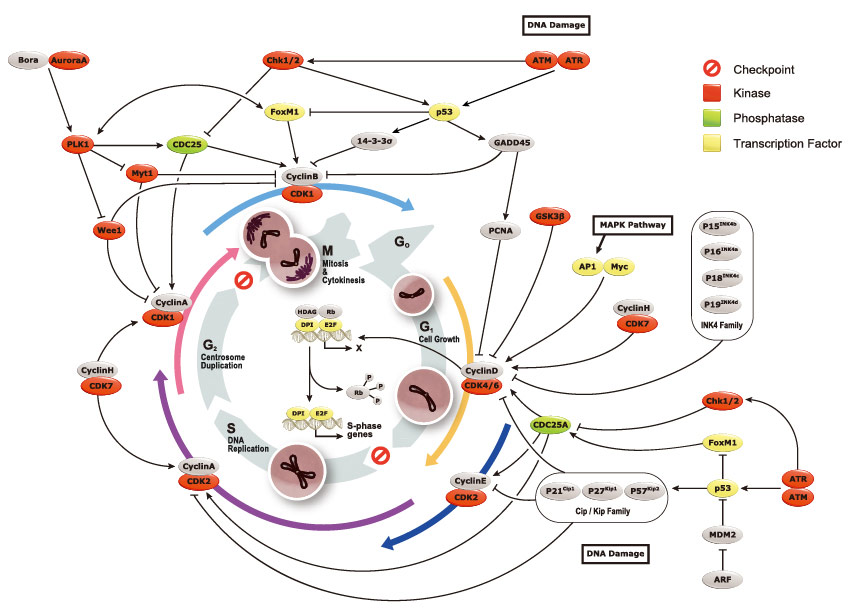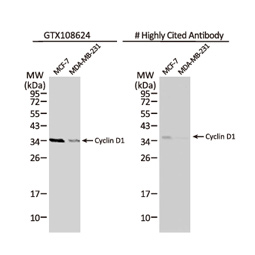 |
The cell cycle is an ordered set of events by which cells undertake growth and division into two daughter cells. In eukaryotes, the cell cycle is described by five phases: G0, G1, S, G2, and M. In G0 phase, cells have entered a quiescent state or are not dividing. During G1 period, the cells grow and accumulate nutrients for the subsequent S phase, where DNA replication occurs. The gap between S and M phases is termed G2 period, during which the cells continue to grow and prepare for mitosis that occurs in M phase. All these processes are elaborately controlled to ensure proper cell development and renewal. The key molecules that program cell cycle are cyclins and cyclin-dependent kinases (CDKs), whereas inhibitors that prevent improper cell division are two families of genes, the Cip / Kip family and the INK4 family. Notably, these inhibitor genes are also termed tumor suppressor genes as they are instrumental in the prevention of tumor formation.
 |
|
|
|
Highlighted Products |
|
|
|
|
||||||||||||||||
|
|
||||||||

![CDK5 antibody [C2C3], C-term (GTX108328)](/upload/media/research/Cell%20Biology/Cell%20Cycle/GTX108328.jpg)



![Aurora A antibody [C3], C-term (GTX104620)](/upload/media/research/Cell%20Biology/Cell%20Cycle/GTX104620.jpg)
